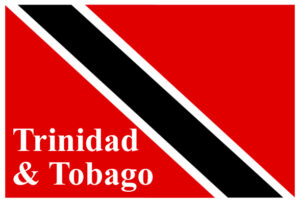 Education is compulsory and free in Trinidad and Tobago for children aged 6-12. Secondary school is also free through age 15, meaning there are no tuition fees though students must pay for books, uniforms, etc. The Ministry of Education overseas pre-primary, primary, and secondary education, while sharing tertiary education responsibilities with the Ministry of Science, Technology, and Tertiary Education.
Education is compulsory and free in Trinidad and Tobago for children aged 6-12. Secondary school is also free through age 15, meaning there are no tuition fees though students must pay for books, uniforms, etc. The Ministry of Education overseas pre-primary, primary, and secondary education, while sharing tertiary education responsibilities with the Ministry of Science, Technology, and Tertiary Education.
Trinidad and Tobago offers early childhood care and education (ECCE) for children under the age of 5 to prepare them for primary school. Primary education is comprised of level I and II for children ages 5-7 and “Standards” (Grades) 1-5 for children through the age of 12. Following primary school, children can sit the Secondary Entrance Assessment to continue into secondary school. Secondary education is comprised of two cycles: junior secondary and upper secondary. Junior secondary lasts three years (Forms 1-3) and upper secondary lasts two years (Forms 4-5).
The Caribbean Examinations Council administers the Caribbean Secondary Education Certificate (CSEC) for secondary students in the Caribbean region to determine if students have completed their secondary studies. The overall grade reflects the student’s performance on the unit as a whole while the profile grade reflects the performance on each module of the unit. The scoring for this examination is as follows:
|
Overall Grades |
Profile Grades |
Description |
|---|---|---|
|
I |
A |
Candidate shows a comprehensive grasp of the key concepts, knowledge, skills and competencies required by the syllabus. |
|
II |
B |
Candidate shows a good grasp of the key concepts, knowledge, skills and competencies required by the syllabus. |
|
III |
C |
Candidate shows a fairly good grasp of the key concepts, knowledge, skills and abilities required by the syllabus. |
|
IV |
D |
Candidate shows a moderate grasp of the key concepts, knowledge, skills and competencies required by the syllabus. |
|
V |
E |
Candidate shows a very limited grasp of the key concepts, knowledge, skills and competencies required by the syllabus. |
|
VI |
F |
Candidate shows a very limited grasp of the key concepts, knowledge, skills and competencies required by the syllabus. |
Grading scales vary for higher education institutions and programs within higher education institutions. The following grading scales are from the University of the West Indies undergraduate programs and the University of Trinidad and Tobago undergraduate programs.
|
Grade |
UWI GPA |
UTT GPA |
UWI Marks |
UTT Marks |
|---|---|---|---|---|
|
A+ |
4.3 |
4.0 |
86-100 |
90-100 |
|
A |
4.0 |
4.0 |
70-85 |
85-89 |
|
A- |
3.7 |
3.7 |
67-69 |
80-84 |
|
B+ |
3.3 |
3.3 |
63-66 |
77-79 |
|
B |
3.0 |
3.0 |
60-62 |
73-76 |
|
B- |
2.7 |
2.7 |
57-59 |
70-72 |
|
C+ |
2.3 |
2.3 |
53-56 |
67-69 |
|
C |
2.0 |
2.0 |
50-52 |
63-66 |
|
C- |
1.7 |
1.7 |
47-49 |
60-62 |
|
D+ |
1.3 |
1.3 |
43-46 |
55-59 |
|
D |
1.0 |
1.0 |
40-42 |
50-54 |
|
F |
0.0 |
0.0 |
0-39 |
0-49 |
One of the main goals for the education system in Trinidad and Tobago is to establish a seamless system in which students can transition easily from one level to the next, something that is reflected in the national curriculum. The national curriculum is comprised of classes in health and physical education, English language arts, integrated science, mathematics, visual and performing arts, social studies, Spanish, and technology education.
The three main universities in Trinidad and Tobago are the National Institute for Higher Education, Research, Science and Technology, the University of Trinidad and Tobago, and the University of the West Indies (St. Augustine Campus). There are also public, private, technical, and teacher colleges. The Accreditation Council of Trinidad and Tobago (ACTT), established in 2004, is responsible for the accreditation for higher education institutions.
Credentials in Trinidad and Tobago are earned following the completion of secondary school and the completion of postsecondary school programs. Following secondary school, students interested in pursuing further education sit for the CSEC and students who get above a III are considered to have passed. With the CSEC, students can attend postsecondary institutions to pursue degrees such as a two-year Associate’s degree or a four-year Bachelor’s degree.
© 2025 Gaetranslations | Terms & Conditions
Website by: Timefortheweb